Video - Harry Smith discovers his Romany roots in the Black Patch
Harry Smith didn’t realise he was Romany until well into his fifties when his daughter Kate started working on his family tree – and then his memories of his childhood all suddenly started to make sense…
“Like normal children, you just play,” says Harry. “Normally around the fire, and the fire would be huge. And the food would be cooked on that in an iron pot. And while that was being cooked, the women would be singing songs, and the men would be playing. My father's a great tap dancer. And then sometimes we would go to the pub. We weren't allowed in the pub. We all stood outside, parents inside, and having a good time. And it was great. We went everywhere by lorry and it was lovely.”
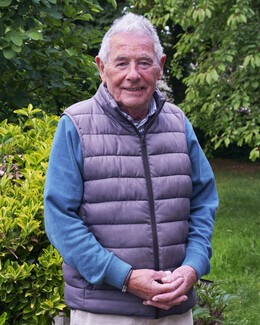
Harry’s dad and grandfather on his dad’s side were born on Black Patch, Handsworth, Birmingham, a well known encampment for Romany Gypsies which was established in the late 19th Century, before finally being evicted by the authorities in the early Twentieth Century. Harry’s mother was born in the houses owned by Romanies in the area local to the Black Patch.
All this started to become apparent when Harry’s daughter Kate started researching her dad’s family tree after finishing her mums. To her surprise, although Kate easily traced her mum’s tree, she was stuck on her dad’s because she could find nothing “in ink”. Finally, although one of Harry’s brothers refused to speak to Kate about their side of the family, his wife called Kate back and mysteriously said to her: “You need to look into the Romany side.”
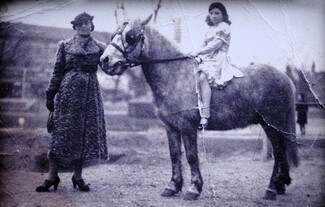
“When Kate told me, she said, "Dad, do you know you're Romany?" I didn't believe her,” says Harry. “I said, "load of rubbish,” because to me, there was nothing there. And it wasn't until we started going through things that you realised, "Oh God, yeah, yeah, I can see. Yeah, it all makes sense." But all my family, they all worked for granddad. And then, of course, when the granddad died, they split up. And I was the first one who decided I didn't want to do haulage, and I wanted to trade. So that's when I started to trade. That was in Guildford, working.
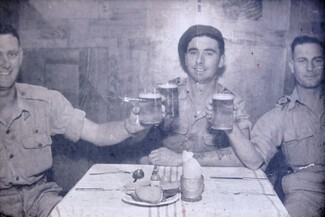
Harry and Kate are still researching his side of their family tree, so he is not yet clear about all the details of how his mother and father ended up there (both his mother and father would have been children when Black Patch was evicted – although Romanies continued to live in the surrounding houses), but Harry says he was born in Surrey.
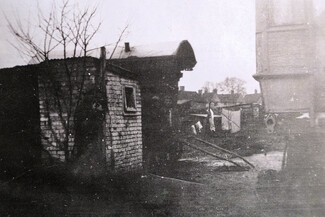
“I was born in Woking, Surrey, in a caravan, but a normal caravan, next door to a house that was being built,” says Harry. “We weren't there that long. As I got older, we moved to a place called Horsfall in Surrey, where all my relations lived.”
“There were quite a lot of them. My aunt, Harriet, who unfortunately died last year, 104, had 12 children. Two died at birth, two died at a young age, eight lived. And with all the rest of the family, we lived around a common.”
Yet Harry’s parents, and most of his uncles and aunts, were reluctant to speak about their Romany heritage.
“The reason I didn't know I was a Romany because nobody spoke about it,” says Harry. “They ignored it. And even after I found out, I could not find any information from my brother, who wouldn't speak about it, nor my aunts, until I went and saw my Aunt Harriet, and she told me everything, and I learnt things that I never heard before.”
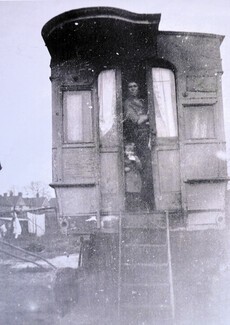
Over the years, since his discovery of his birthright, Harry has been reconnecting with his Romany heritage in other ways – including during a trip to the Derby horse races.
“I took my daughter down to the Derby to show her (and) that evening, we went to a Romany do, with music, singing and lovely food,” says Harry. “And the first song that came on, I started singing along with it. And my daughter said, "You know that song?” and I said yes. It was because my mother used to sing them. My mother, or the family, it's fantastic.
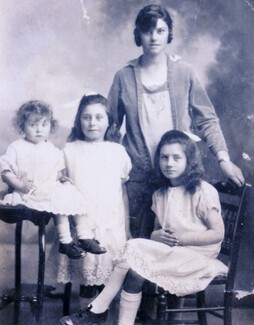
Interview by Dan Haworth-Salter, write up by Mike Doherty – for the Travellers Times
All photographs courtesy of Harry Smith.
Video and portrait of Harry Smith by Dan Haworth-Salter for the Travellers Times